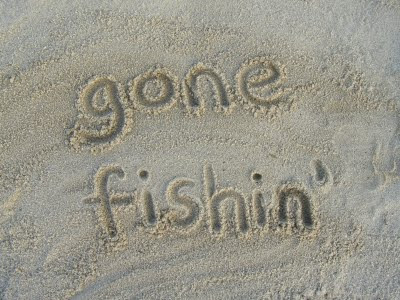"Born in 1936 in Lettsworth, Louisiana, George "Buddy" Guy remains one of the world's most vital blues musicians and certainly one of the genre's most influential guitarists. Guy grew up on a diet of uniquely expressive blues stylists like Lightnin' Hopkins and T-Bone Walker. Eventually relocating to Chicago, he would learn directly from the likes of Muddy Waters, Guitar Slim, and Otis Rush. Guy would develop his own distinctive high-energy style that was typified by extreme string bending and a tense, staccato attack. Guy himself would strongly influence an impressive list of next generation guitarists, with Jimi Hendrix, Eric Clapton, and Stevie Ray Vaughan the most obvious examples.
Junior Wells family hailed from Memphis and he was raised in Arkansas. Born Amos Wells Blakemore Jr., two years earlier than Buddy Guy, Wells initially emulated Sonny Boy Williamson and Memphis-based Junior Parker. Wells too would be drawn to Chicago, where at age 19, he was recruited into Muddy Waters' band, replacing Little Walter. An exciting vocalist, Wells is more often revered for developing the modern amplified style of harmonica playing, where he soon became second to none.
Both Guy and Wells became recording artists on their own as the 1950s waned. At the dawn of the 1960s they collaborated for the first time on Guy's recording of "Ten Years Ago." The two would continue recording on their own, as well as collaborating, which provided them a wealth of material when they performed together. The dynamic stage presence of these two powerhouse musicians was something special indeed, and this performance, recorded at the 1968 Newport Folk Festival, is an extraordinary testament to Guy and Wells' onstage power.
The recording begins with Festival director George Wein's introduction. The band, which includes the exemplary rhythm section of bassist Jack Myers and jazz drummer-turned bluesman Fred Below, and A.C. Reed as a one-man horn section, kick things off with a hot warm-up instrumental before sinking their teeth into Guy's "One Room Country Shack." Possibly the quintessential track from Guy's classic 1968
A Man And The Blues LP, this sets the stage for the controlled fury yet to come.
With A.C. Reed's sax serving as additional rhythmic punctuation, Guy and Wells next tear into "Checkin' On My Baby," another essential song in their catalogue. Wells belts it out and blows a mean harp while Guy's stratocaster cuts like a knife between every line. Next they slow it down for a smoldering read of "Somebody Hoodooed The Hoodoo Man" followed by Junior Wells' signature song, "Messin' With The Kid." On the latter, Guy's biting tone is particularly raunchy and it's an outstanding performance all around.
To bring the set to a close, Guy and Wells pull out all the stops during a nearly nine-minute exploration of Sonny Boy Williamson's "Help Me." This is pure blues of the highest order, with Guy sounding like B.B. King on steroids and Wells and the band improvising up a storm. On this performance in particular, one can clearly hear how much this band influenced younger musicians, like Johnny Winter and the Butterfield Blues Band. This performance also sounds like a precursor to the incredible version on Van Morrison's "It's Too Late To Stop Now," recorded five years later but in remarkably similar form right down to the vocals. Wells' passionate vocals and the style of these musicians were obviously having a far-reaching impact. This number must certainly have been a highlight of the entire day and the Newport audience lets them know it. Despite George Wein desperately trying to keep the show moving, the audience is literally howling for more, causing Wein to finally relent and invite Guy, Wells & Co. back to the stage for a short (and Wein clarifies it has to be short!) encore.
Guy and Wells have other plans and treat the audience to a fantastic double encore beginning with "Stormy Monday," another tasty slow blues that starts off with a delicate touch but soon has Guy squeezing off a barrage of fiery riffs. He even manages to interject some spontaneous humor into one of his searing solos, by quoting the traditional folksong "Mary Had a Little Lamb" (it was a folk festival after all). Just when everyone was expecting the song to wind to a close, the band veers off into a funky take on James Brown's "I Got You," which must have had the already ecstatic audience up on their feet dancing.
Previously unheard and newly mixed direct off the 1/2" 4-track master reel, this sho
uld prove a rewarding listen for anyone even remotely interested in amplified blues. For those already well aware of the raw energy generated by Guy and Wells together in their prime, this recording is destined to become an important part of their legacy."
(from:
http://www.wolfgangsvault.com/ - thanks a lot!)
Tracklist:
1. Intro
2. One Room Country Shack
3. Checkin' On My Baby
4. Somebody Hoodooed The Hoodoo Man Intro
5. Somebody Hoodooed The Hoodoo Man
6. Messin' With The Kid
7. You Gotta Help Me Intro
8. You Gotta Help Me
9. Crowd/Talk
10. Stormy Monday/I Feel Good
Buddy Guy - Guitar, Vocals
Junior Wells - Vocals, Harmonica
A.C. Reed - Sax
Jack Myers- Bass
Fred Below - Drums
(320 kbps, no cover art)


































